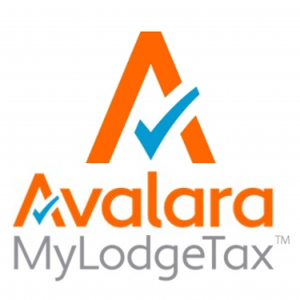What charges are subject to lodging tax?
- Oct 19, 2017 | MyLodgeTax

When you’re in the short-term vacation rental business, you also have an obligation to collect and file lodging taxes. These taxes are a percentage of the cost of lodging your guests pay and you, as the host, must collect and pass on to the required tax jurisdictions.
Although lodging tax is often simply applied to the total you charge your guests, it can sometimes be tricky to figure out when part of the lodging bill isn’t subject to tax. This occurs when the cost of lodging consists of more than just the actual room rate. Charges such as fees for cleaning, extra guests, pets, insurance or deposits, among others, may also be included in the total cost for the guest.
In order to be certain you’re charging and collecting the right amount of lodging tax, you need to make sure you’re calculating tax only on charges that are subject to tax — and not on charges that aren’t taxable. Regulations governing which charges are taxed can vary widely, so it’s important to know your local laws.
Typically, any charges that are mandatory, including the room rate and required cleaning fees, are subject to lodging tax. Fees that do not necessarily apply to all renters, such as pet fees or additional vehicle parking fees, are commonly not taxable. But it all depends on the specific regulations in your area.
For example, in Sarasota County, Florida, “Tourist tax is to be paid on the rent and other fees included in the rent such as: accidental damage insurance, cleaning fees, roll away bed fees, pet fees, and utility fees.”
On the other hand, refundable fees, such as damage deposits, often are not subject to lodging taxes. In Denver, for instance, “fees which are optional or refundable are not subject to lodger’s tax.”
Keep in mind, though, that taxability can vary widely, especially for charges for services or amenities provided during a stay, such as room service or pay-per-view movies.
Sonoma County, California, for example, considers “any and all expenses required to rent the room or lodging,” including charges such as “housekeeping or cleaning fees, linens, energy charges, resort fees, and the like,” to be subject to lodging taxes.
However, the use of banquet or meeting rooms; pet lodging; child care; use of safes or other secure storage areas; food or meals; pay-per-view movies, video games, telephones, or internet services; and cancellation charges are specifically exempt from lodging taxes in Sonoma County.
Then there is the complicated case of Arizona. In Scottsdale, a local “transient tax” is assessed on short-term rentals, in addition to the statewide “transaction privilege tax,” Arizona’s unique form of sales tax. The transient tax is due on “income from charges for lodging,” which can include no-show revenue, cancellation revenue, and resort fees. On the other hand, “nonrefundable deposits” for cleaning, keys, pet fees, maintenance, etc., are exempt from the transient tax, but subject to the general transaction privilege tax.
The rules may be completely different if reservations for your rental property are being handled by an outside company. In Florida, for example, the state Supreme Court ruled in a case against Expedia in 2015 that governments could only tax the amount received by the hotel for a room and not extra fees charged by a reservation company. A 2016 court ruling in Sarasota County further established that fees charged by a separate reservation company for anything except room charges are not subject to sales tax.
As you may realize by now, the rules regarding taxability can be complicated and may vary dramatically from jurisdiction to jurisdiction. In order to accurately calculate lodging tax, you need to research and understand which rules apply in each jurisdiction — state, county, and city — governing your property. Otherwise, you could be collecting too little tax or too much, both of which can get you in hot water with the tax authorities.











